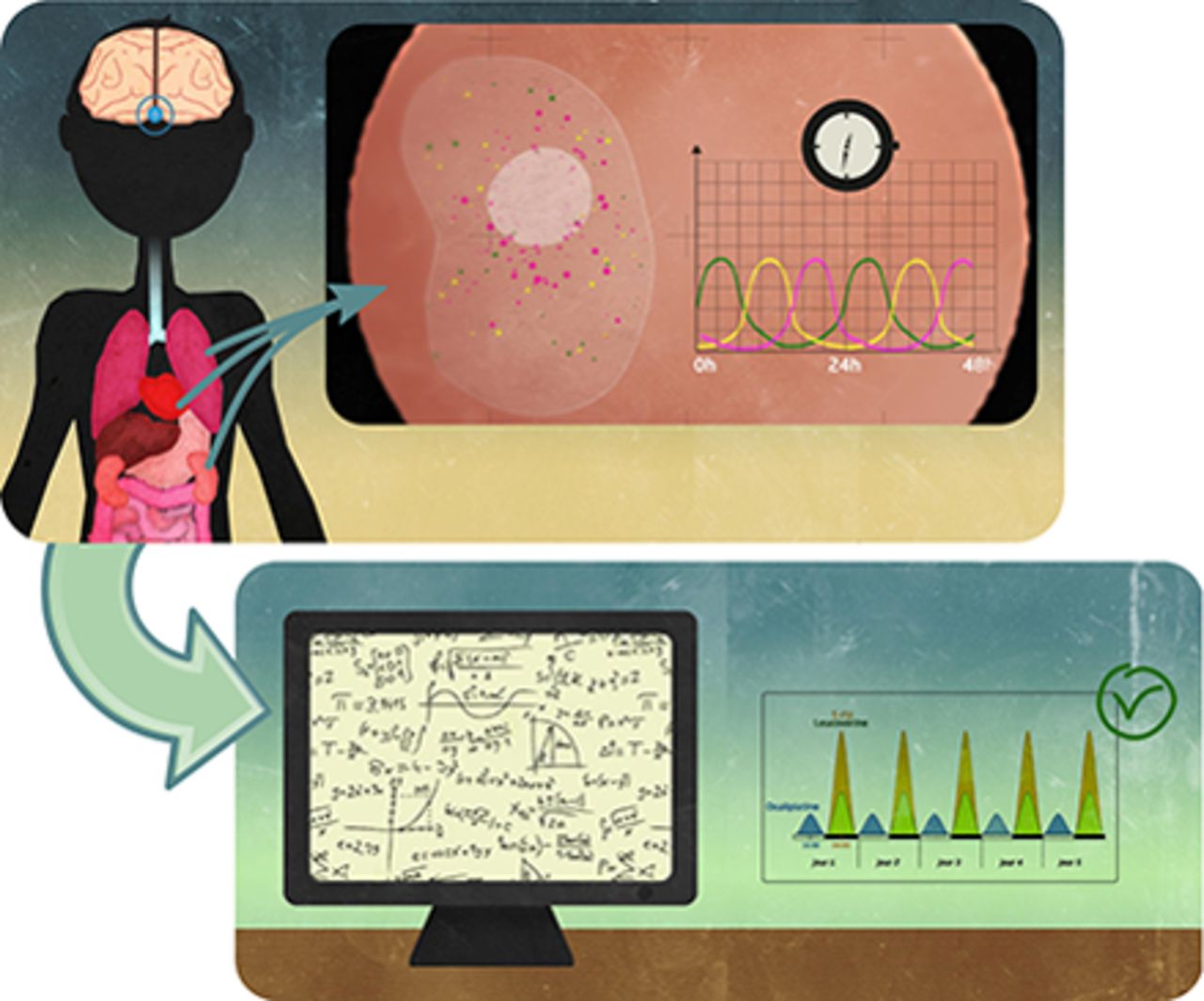Pharmacological Reviews ( IF 21.1 ) Pub Date : 2017-04-01 , DOI: 10.1124/pr.116.013441 Annabelle Ballesta , Pasquale F. Innominato , Robert Dallmann , David A. Rand , Francis A. Lévi

|
Chronotherapeutics aim at treating illnesses according to the endogenous biologic rhythms, which moderate xenobiotic metabolism and cellular drug response. The molecular clocks present in individual cells involve approximately fifteen clock genes interconnected in regulatory feedback loops. They are coordinated by the suprachiasmatic nuclei, a hypothalamic pacemaker, which also adjusts the circadian rhythms to environmental cycles. As a result, many mechanisms of diseases and drug effects are controlled by the circadian timing system. Thus, the tolerability of nearly 500 medications varies by up to fivefold according to circadian scheduling, both in experimental models and/or patients. Moreover, treatment itself disrupted, maintained, or improved the circadian timing system as a function of drug timing. Improved patient outcomes on circadian-based treatments (chronotherapy) have been demonstrated in randomized clinical trials, especially for cancer and inflammatory diseases. However, recent technological advances have highlighted large interpatient differences in circadian functions resulting in significant variability in chronotherapy response. Such findings advocate for the advancement of personalized chronotherapeutics through interdisciplinary systems approaches. Thus, the combination of mathematical, statistical, technological, experimental, and clinical expertise is now shaping the development of dedicated devices and diagnostic and delivery algorithms enabling treatment individualization. In particular, multiscale systems chronopharmacology approaches currently combine mathematical modeling based on cellular and whole-body physiology to preclinical and clinical investigations toward the design of patient-tailored chronotherapies. We review recent systems research works aiming to the individualization of disease treatment, with emphasis on both cancer management and circadian timing system–resetting strategies for improving chronic disease control and patient outcomes.
中文翻译:

系统时间疗法
慢性疗法旨在根据内源性生物节律来治疗疾病,该节律可缓和异种生物的新陈代谢和细胞药物反应。存在于单个细胞中的分子时钟涉及在调节反馈回路中互连的大约十五个时钟基因。它们由下丘脑起搏器视交叉上核协调,并根据环境周期调整昼夜节律。结果,许多疾病和药物作用的机制都由昼夜节律系统控制。因此,在实验模型和/或患者中,根据昼夜节律安排,将近500种药物的耐受性变化高达五倍。而且,治疗本身根据药物时机而破坏,维持或改善了昼夜节律系统。在随机临床试验中,尤其是对于癌症和炎症性疾病,已经证明了采用基于昼夜节律的疗法(时间疗法)可以改善患者的预后。但是,最近的技术进步突显了患者之间昼夜节律功能的巨大差异,导致计时疗法反应的显着差异。这些发现主张通过跨学科的系统方法来促进个性化计时疗法的发展。因此,数学,统计,技术,实验和临床专业知识的结合正在影响专用设备以及诊断和输送算法的发展,从而实现治疗个性化。尤其是,目前,多尺度系统的时间药理学方法将基于细胞和全身生理学的数学模型结合到临床前和临床研究中,以进行针对患者的时间疗法的设计。我们回顾了针对疾病治疗的个体化的最新系统研究工作,重点是癌症管理和昼夜节律计时系统–改善慢性疾病控制和患者预后的复位策略。


























 京公网安备 11010802027423号
京公网安备 11010802027423号